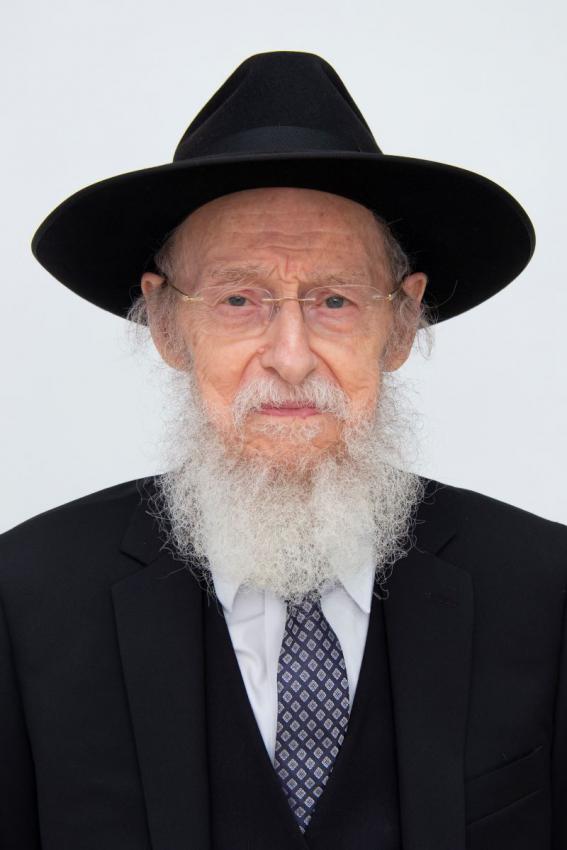21 April 2023
Yad Vashem, the World Holocaust Remembrance Center in Jerusalem, mourns the passing of Holocaust survivor Rabbi Efraim Mol, Z"l. Rabbi Mol was scheduled to recite the El Maleh Rahamim, the Jewish prayer for the souls of the martyrs, at the official State Opening Ceremony for Holocaust Remembrance Day this past Monday evening. He is survived by his wife, four children, many grandchildren and great-grandchildren. May his memory be blessed.
About Rabbi Efraim Mol:
Efraim Mol was born in 1938 in a suburb of Brussels, Belgium, the only son of Reuven Yoel (Youlek) and Bella, who immigrated from Poland to Belgium at the end of World War I. Reuven Yoel, who was a member of the Beitar movement, created handmade leather wallets in one of the rooms in the family home. In another, Bella fashioned women's hats.
In September 1942, the family fled to France intending to escape to Switzerland, but were arrested by the Gestapo in the city of Besançon, near the Swiss border. Efraim and his parents were brought to the Gestapo headquarters in the city. On German orders, French policemen separated Efraim from his mother and father. Bella kissed him and put two photographs in his pocket: one of herself and one of his father. Efraim had no idea that he would never see either of them again. On 18 September 1942, Reuven Yoel and Bella Mol were deported from the Drancy concentration camp near Paris to Auschwitz, where they were murdered.
The police brought four-year-old Efraim to the convent in Besançon. The nuns there had volunteered to take in many Jewish children in Efraim's situation. After a few weeks, Efraim was sent to a Jewish orphanage in Paris, along with other boys and girls from the convent.
Efraim was adopted by the Weils, French Jews who had an 18-year-old daughter. The couple wanted a son and asked to adopt a Jewish boy from the orphanage. Efraim was chosen thanks to the good word of one of the nurses, and also because he spoke French. His adoptive parents showered him with warmth and love.
Later that year, the Germans and the French followed Efraim's trail, after finding evidence of his stay in the convent. Lucie Cartier, an acquaintance of his adoptive parents, hid them in her home and found Efraim refuge in an apartment in the suburbs of Paris, where she took care of all his needs. In 1971, Lucie Cartier was recognized by Yad Vashem as Righteous Among the Nations.
In the summer of 1944, the Allies liberated Paris.
Efraim's adoptive parents were assimilated Jews, but in 1957 Efraim visited Israel and decided to serve in the IDF. His adoptive parents objected; instead, he was drafted into the French army and fought in the Algerian war. After his release, Efraim immigrated to Israel and settled on a religious kibbutz. He was drafted into the IDF and became a sapper in combat reserve units.
While in the reserves, Efraim met a Lubavitch Hasid and was drawn to Hasidism. He joined the Chabad community and, after five years on the kibbutz, moved with his family to Jerusalem. He worked in a defense industries factory and continued to serve in the IDF combat reserves. He fought in all of Israel's wars until the First Lebanon War. After retiring, he became a scribe. Efraim shares his experiences in the Holocaust with various audiences and groups.







